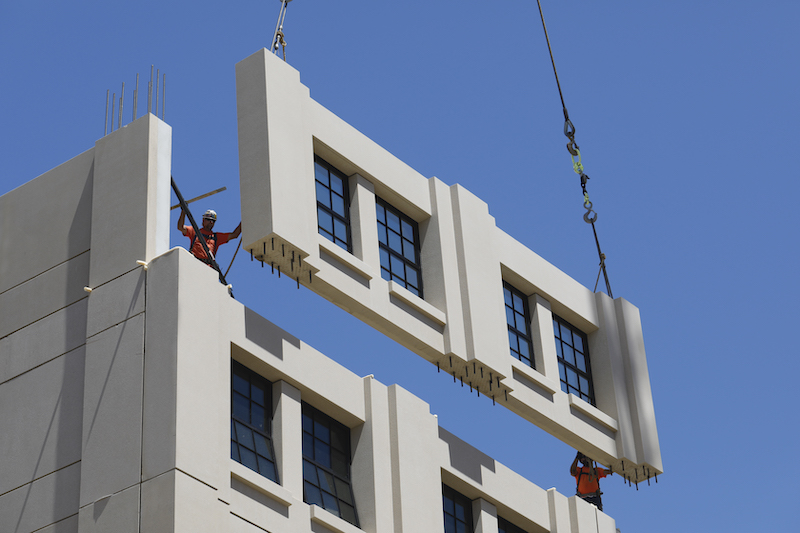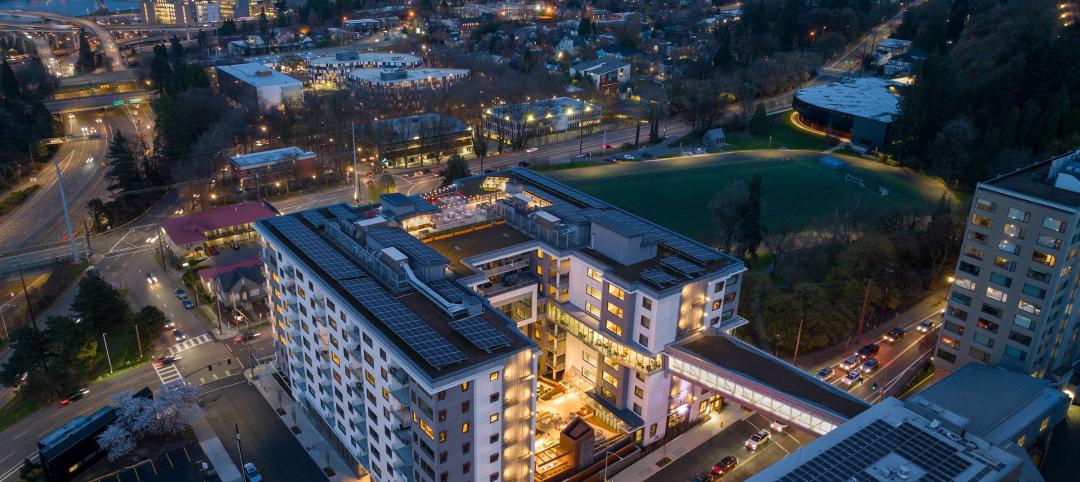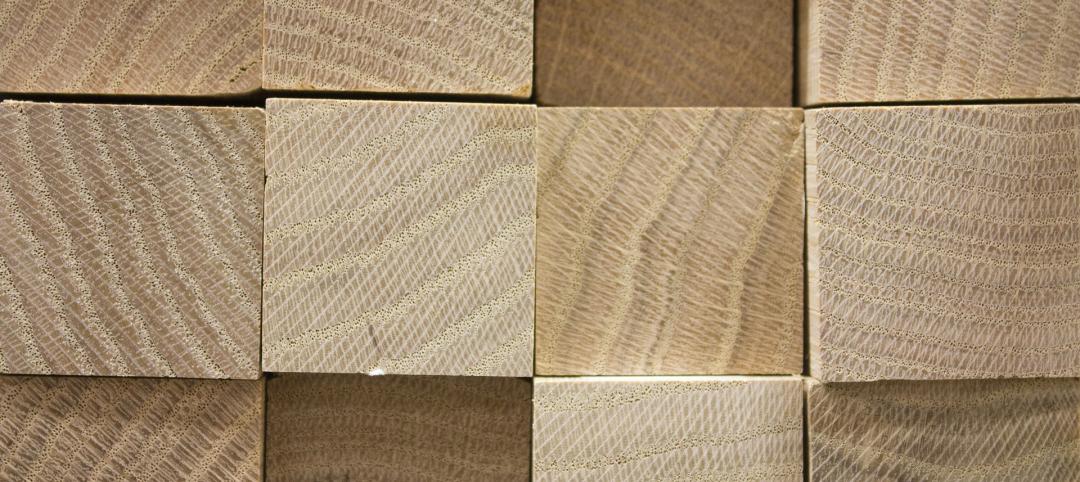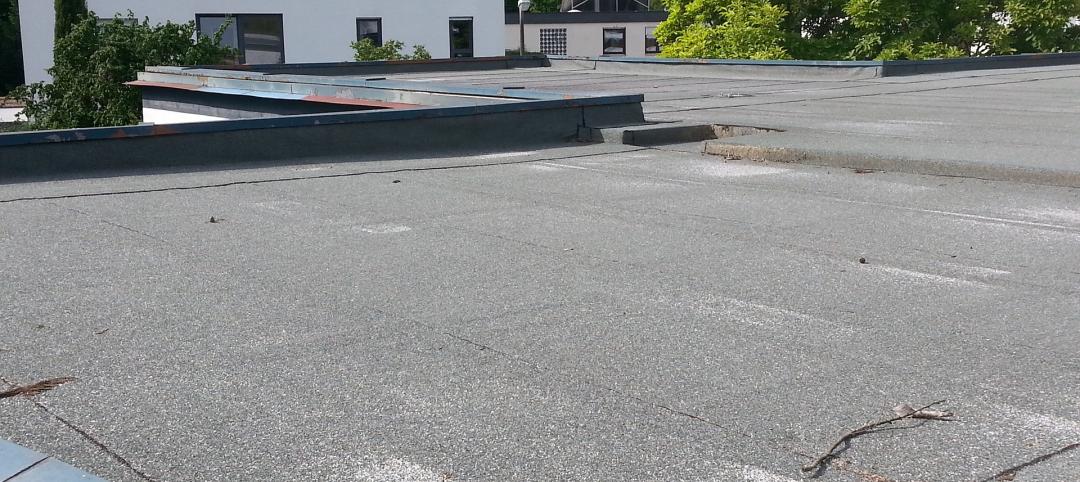Gensler, the global architecture firm, is currently working on nine citizenM-branded hotels across North America, including a 264-key hotel in the South Lake Union neighborhood of Seattle that, when it opens in May, will be that city’s first fully modular hotel.
Gensler is among a growing number of AEC firms that are incorporating prefabrication and modular construction into their project design. The hotel sector has been particularly receptive to modular construction, most notably Marriott International, which since 2015 has included prefab guestrooms and bathrooms in more than 50 of its projects.
The Building Team that worked on the citizenM project in Seattle stacked seven to eight modules per day, on average, and set all of the rooms in 89 days, reducing the project’s schedule by four months, and reducing construction waste by as much as 60%. (Mortenson is the GC on this hotel project.)
The rooms themselves are small; the width of a king-size bed and only 160 sf. But they are designed and built to luxury-brand standards with the latest control technology. The rooms will also include personal tablets that allow guests to track the hotel’s real-time sustainability performance.
ALSO SEE: Meet the masters of offsite construction
“Prefabrication has a lot of positive impacts: on construction speed, improved quality and construction tolerances, on people and processes,” observes Daniel Glaessl, Design Director for Gensler in its San Francisco Bay Area office.
He says that his office is using prefabrication “as often as possible.” But there are some challenges: manufacturing plants can be in remote locations, for one. (The modules for the citizenM hotel in Seattle were shipped to the Port of Seattle from a Europe-based supplier.) Glaessl adds that prefab requires more preplanning and longer lead times, and the components need to be designed so they can fit onto trucks for transport.
Clark Pacific sees growth in demand for prefabrication and modular construction solutions
As prefabrication and modular construction become more popular in the U.S., building teams and their clients have been turning to domestic supply partners. For example, Clark Pacific, a components provider that has operated out of West Sacramento, Calif., since 1963, is working with Gensler’s Seattle office through design assist on a separate citizenM hotel in San Francisco.
Clark Pacific is the single source for that building’s envelope, utilizing the supplier’s Infinite Panel, a standard frame and connection system that meets or exceeds Title 24, water, vapor, sound and fire code requirements. This project is entering the production phase in Clark Pacific’s Northern California plant that will prefabricate the hotel’s façade.
Façade manufacture is how Clark Pacific got started, says Mickey Ankheli, AIA, its Director of Architecture/Design-Build. But over the years it has expanded its product variety and delivery system.
Clark Pacific’s plant in Woodland, Calif., which sits on 120 acres, focuses on structural components and products for its glass division. The company’s 2-million-sf plant in Fontana, Calif., makes Infinite Panel and Architectural Precast products. And its factory in Adelanto, Calif., makes structural components.
Ankheli says his company is seeing a “lot of traction” in demand for prefabricated products from the multifamily and campus housing sectors. That demand is strengthening, he posits, because of the industry’s labor shortage. And prefab assembly is particularly well suited for tight urban settings.
But, he acknowledges, prefabricated delivery requires that design decisions “be locked in earlier, and architects need to understand these parameters.” His company now positions itself as a provider of turnkey design-build.
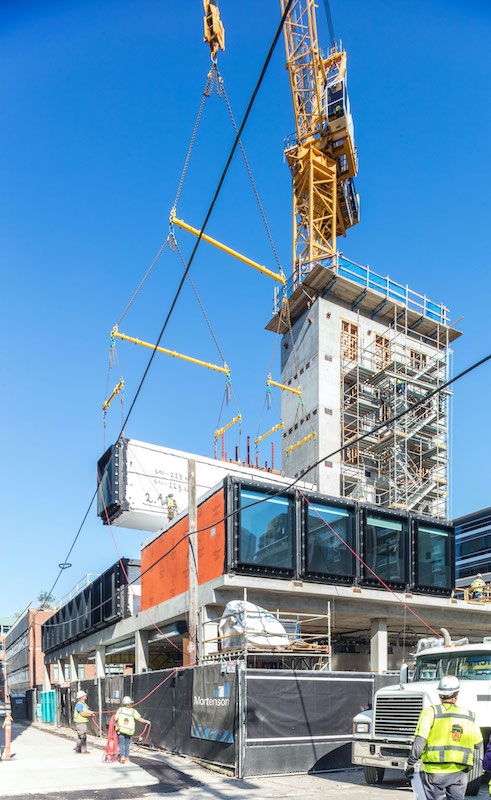
The construction of a citizenM hotel in Seattle used prefabricated modules that were placed seven to eight per day. Image: Gensler and Heywood Chen
“Prefab works best on projects that have a lot of iteration in their design,” says Glaessl. So design teams “need to be disciplined.”
That doesn’t mean there’s no flexibility in prefabrication or modular construction. Gensler and Clark Pacific are working on a parking structure for a technology client in the Bay Area. The structure, which will have a maximum capacity of 2,055 parking stalls, is being designed for adaptive reuse as office space, if market conditions warrant such a shift in use.
Ankheli recalls that, in midstream, the parking structure’s client wanted changes that included adding an athletic field to the project. While Clark Pacific had to retool a bit, Ankheli asserts that prefabrication actually made it easier to meet the client’s wishes.
The company, which sells into the west coast, including Arizona and Nevada, touts the resilience of its components, especially during seismic events. Clark Pacific sees its growth coming primarily from greater efficiency in serving its existing markets, says Ankheli.
Related Stories
Senior Living Design | Apr 24, 2024
Nation's largest Passive House senior living facility completed in Portland, Ore.
Construction of Parkview, a high-rise expansion of a Continuing Care Retirement Community (CCRC) in Portland, Ore., completed recently. The senior living facility is touted as the largest Passive House structure on the West Coast, and the largest Passive House senior living building in the country.
Hotel Facilities | Apr 24, 2024
The U.S. hotel construction market sees record highs in the first quarter of 2024
As seen in the Q1 2024 U.S. Hotel Construction Pipeline Trend Report from Lodging Econometrics (LE), at the end of the first quarter, there are 6,065 projects with 702,990 rooms in the pipeline. This new all-time high represents a 9% year-over-year (YOY) increase in projects and a 7% YOY increase in rooms compared to last year.
Architects | Apr 24, 2024
Shepley Bulfinch appoints new Board of Director: Evelyn Lee, FAIA
Shepley Bulfinch, a national architecture firm announced the appointment of new Board of Director member Evelyn Lee, FAIA as an outside director. With this new appointment, Lucia Quinn has stepped down from the firm’s Board, after serving many years as an outside board advisor and then as an outside director.
ProConnect Events | Apr 23, 2024
5 more ProConnect events scheduled for 2024, including all-new 'AEC Giants'
SGC Horizon present 7 ProConnect events in 2024.
75 Top Building Products | Apr 22, 2024
Enter today! BD+C's 75 Top Building Products for 2024
BD+C editors are now accepting submissions for the annual 75 Top Building Products awards. The winners will be featured in the November/December 2024 issue of Building Design+Construction.
Laboratories | Apr 22, 2024
Why lab designers should aim to ‘speak the language’ of scientists
Learning more about the scientific work being done in the lab gives designers of those spaces an edge, according to Adrian Walters, AIA, LEED AP BD+C, Principal and Director of SMMA's Science & Technology team.
Resiliency | Apr 22, 2024
Controversy erupts in Florida over how homes are being rebuilt after Hurricane Ian
The Federal Emergency Management Agency recently sent a letter to officials in Lee County, Florida alleging that hundreds of homes were rebuilt in violation of the agency’s rules following Hurricane Ian. The letter provoked a sharp backlash as homeowners struggle to rebuild following the devastating 2022 storm that destroyed a large swath of the county.
Mass Timber | Apr 22, 2024
British Columbia changing building code to allow mass timber structures of up to 18 stories
The Canadian Province of British Columbia is updating its building code to expand the use of mass timber in building construction. The code will allow for encapsulated mass-timber construction (EMTC) buildings as tall as 18 stories for residential and office buildings, an increase from the previous 12-story limit.
Standards | Apr 22, 2024
Design guide offers details on rain loads and ponding on roofs
The American Institute of Steel Construction and the Steel Joist Institute recently released a comprehensive roof design guide addressing rain loads and ponding. Design Guide 40, Rain Loads and Ponding provides guidance for designing roof systems to avoid or resist water accumulation and any resulting instability.
Building Materials | Apr 22, 2024
Tacoma, Wash., investigating policy to reuse and recycle building materials
Tacoma, Wash., recently initiated a study to find ways to increase building material reuse through deconstruction and salvage. The city council unanimously voted to direct the city manager to investigate deconstruction options and estimate costs.


